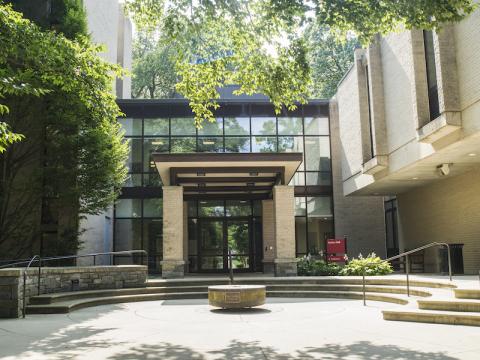Join Ezekiel's Wheels Klezmer Band for an interactive introduction to klezmer music. We'll explore the history of our music as we sing and play pearls of the traditional repertoire alongside new compositions. Plus, we'll teach you just enough Yiddish to sing along and a few different dances to get you out of your seat. This program is suitable for all audiences - no prior knowledge of Yiddish or ability to read music necessary to enjoy.
Ezekiel's Wheels Klezmer Band is one of the world's preeminent klezmer ensembles. 2024-25 season highlights include performing as soloist with Maestro Joshua Weilerstein and the Aalborg Symphony Orchestra in Abigale Reisman's Gedanken for klezmer band and orchestra (DK), STETL FEST Brno (CZ), the Museum of Fine Arts Boston (USA), and the John F. Kennedy Center for the Performing Arts (USA).
Their music has been featured on television in the Netherlands and Brazil, on the Boston Jewish Music Festival’s compilation album, and a feature length film, in addition to their eight albums.
The Wheels have performed with Hankus Netsky, Frank London, Fabiola Méndez, David Broza, Paula Cole, Jill Sobule, BETTY, and many more collaborators from the klezmer world and beyond. When they’re not playing klezmer, they can be found backing up such household names as Eminem, Hugh Jackman, Weird Al Yankovic, Amanda Palmer, and Chris Botti.
More Ezekiel’s Wheels music continues later on March 2 at the Kaiserman JCC in Wynnewood! Learn more and register.
Directions to The Jaharis Recital Hall:
The Recital Hall is attached to Roberts Hall, and is a five minute walk from our usual location in Stokes Hall. You can park closer to the Jaharis Recital Hall by using the usual College Ave entrance, and turning LEFT on Carter Rd immediately after entering the college. Follow Carter Rd and park anywhere on the left that doesn’t say “Student Parking Only”. There’s another lot ahead on the right (Lloyd lot) that is closest to the Recital Hall and has some handicap parking. Look for signs to walk to the Recital Hall, which is attached to Roberts Hall.
